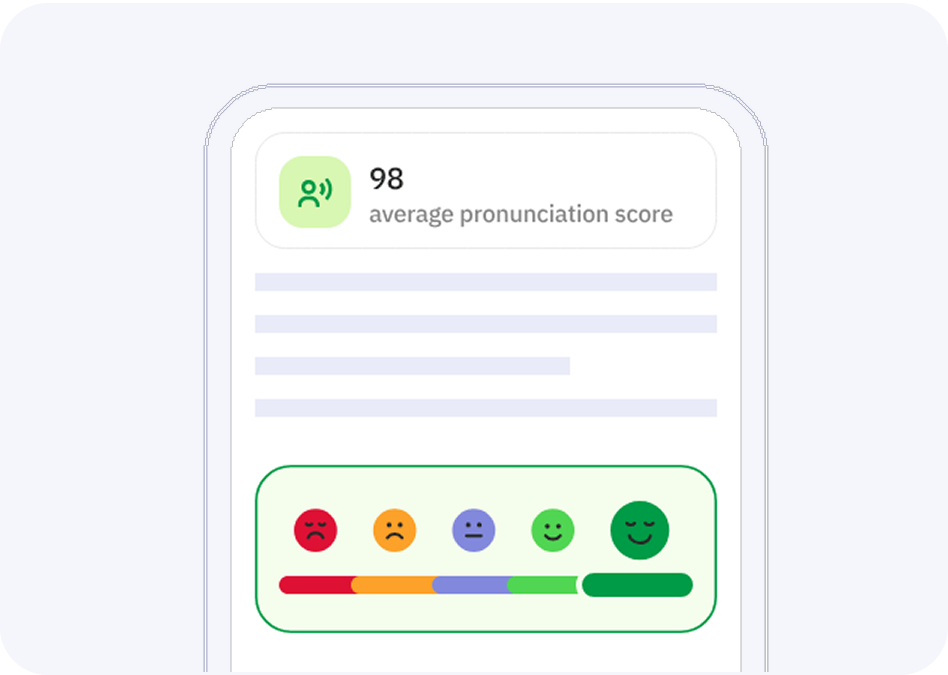Tips for Improving Your Writing Skills for Language Learning
Learning a new language can be an exciting and rewarding experience. However, mastering the writing skills in a foreign language can be challenging. In this article, we will discuss various tips and strategies for improving your writing skills for language learning. By following these tips and practicing regularly, you can become a proficient writer in your target language. So, let’s dive in and explore the tips for improving your writing skills for language learning!

The talkpal difference

Personalized Education
Every person approaches the study process differently. By leveraging Talkpal technology, we analyze the patterns of millions of learners at the same time to build highly effective educational structures. These insights allow us to create a curriculum that is fully customized to fit the specific needs and interests of every student.

Cutting-Edge Technology
Our main mission is to lead the way in providing a tailored educational journey for every user by utilizing the most recent developments in modern innovation. We strive to make high quality practice accessible to all through superior technical solutions and our advanced AI tutor.

Making Learning Fun
We have transformed the educational process into something truly entertaining. Since maintaining momentum can be difficult in an online setting, we designed Talkpal to be incredibly captivating. The platform is so engaging that users often prefer acquiring new skills with us instead of playing video games.
LANGUAGE LEARNING EXCELLENCE
The most efficient way to learn a language
Try Talkpal for freeUnderstand the Basics of the Language
Before you can improve your writing skills, it’s essential to have a solid understanding of the basics of the language you’re learning. This includes vocabulary, grammar, and syntax.
Vocabulary
Vocabulary refers to the words and phrases used in a language. To improve your writing skills, you need to expand your vocabulary, so you can express your thoughts and ideas more effectively.
Grammar
Grammar is the set of rules that govern the structure and composition of sentences in a language. Proper grammar helps to ensure that your writing is clear, accurate, and easy to understand.
Syntax
Syntax is the arrangement of words and phrases in a sentence. Understanding the correct syntax in your target language will help you write more naturally and coherently.
Expand Your Vocabulary
Expanding your vocabulary is crucial for improving your writing skills. Here are some tips to help you learn new words and phrases in your target language:
Make Use of Flashcards
Flashcards are a great way to memorize new vocabulary. You can create your flashcards with words, phrases, and their translations on one side and examples or images on the other side.
Learn New Words in Context
Learning new words in context is more effective than memorizing them in isolation. Read texts in your target language and take note of the new words you encounter. Try to understand their meaning based on the context in which they’re used.
Use Vocabulary Building Tools
There are various vocabulary-building tools and apps available that can help you learn new words and phrases in a fun and engaging way. Some popular options include Anki, Memrise, and Quizlet.
Improve Your Grammar
A strong grasp of grammar is essential for writing clearly and effectively in any language. Here are some tips for improving your grammar skills:
Study Grammar Rules
Make sure to study the grammar rules of your target language thoroughly. You can use grammar books, websites, or online courses to learn and review grammar rules.
Practice with Exercises
Practicing grammar exercises is an excellent way to reinforce your understanding of grammar rules. Look for exercises that focus on specific grammar points and complete them regularly.
Use Grammar Checker Tools
Grammar checker tools, such as Grammarly or LanguageTool, can help you identify and correct grammar mistakes in your writing. Use these tools to improve your grammar skills and produce error-free texts.
Enhance Your Syntax
Improving your syntax will help you write more naturally and coherently in your target language. Here are some tips to enhance your syntax skills:
Read and Analyze Texts from Native Speakers
Reading texts written by native speakers can help you learn the natural syntax of your target language. Analyze how sentences are structured and try to emulate their style in your writing.
Use Sentence Structure Tools
There are various tools available that can help you improve your sentence structure, such as the Hemingway Editor or ProWritingAid. These tools can analyze your writing and provide suggestions for improving your syntax.
Practice Writing Different Types of Sentences
Experiment with writing different types of sentences, such as simple, compound, complex, and compound-complex sentences. This practice will help you become more versatile in your writing and improve your syntax skills.
Practice Writing Regularly
To become a proficient writer in your target language, you need to practice writing regularly. Here are some ideas for writing practice:
Journaling
Keep a daily journal in your target language. This will not only help you practice your writing skills but also give you a chance to express your thoughts and feelings.
Blogging
Start a blog in your target language and write about topics that interest you. This will help you practice your writing skills and build an online portfolio of your work.
Short Stories and Essays
Write short stories or essays in your target language to practice your writing skills and creativity.
Get Feedback from Others
Receiving feedback from others is essential for improving your writing skills. Here are some ways to get feedback on your writing:
Join Writing Groups
Join writing groups or forums in your target language where you can share your work and receive feedback from other learners and native speakers.
Participate in Writing Workshops
Attend writing workshops or classes in your target language. These workshops often provide opportunities for participants to share their work and receive feedback from instructors and peers.
Ask for Feedback from Native Speakers
Ask native speakers to review and provide feedback on your writing. They can offer valuable insights into your language usage, grammar, and syntax.
Learn from Your Mistakes
When you receive feedback on your writing, make sure to learn from your mistakes and apply the corrections to your future work. This will help you improve your writing skills over time.
Use Writing Prompts and Exercises
Writing prompts and exercises can help you practice your writing skills and overcome writer’s block. Look for prompts and exercises in your target language and complete them regularly.
Read Widely and Analyze Texts
Reading widely in your target language will expose you to different writing styles and techniques. Analyze the texts you read and try to incorporate the techniques you learn into your writing.
Translate Texts from Your Native Language
Translating texts from your native language into your target language can be a useful exercise for improving your writing skills. This practice will challenge you to find the appropriate words and structures to express the same ideas in a different language.
Edit and Revise Your Work
Editing and revising your work is crucial for improving your writing skills. Always review your writing for errors and areas that could be improved. This will help you produce polished and high-quality texts.
Be Persistent and Consistent
Improving your writing skills takes time and dedication. Be persistent in your efforts and practice consistently to see progress in your writing abilities.
Conclusion
Improving your writing skills for language learning is an ongoing process that requires dedication, practice, and patience. By following the tips outlined in this article and actively working on your writing skills, you can become a proficient writer in your target language. Keep practicing, seek feedback, and never give up on your language-learning journey!
The most efficient way to learn a language
Try Talkpal for freeFrequently Asked Questions
How long does it take to improve my writing skills in a foreign language?
Can I improve my writing skills without a formal course or teacher?
How can I stay motivated to practice my writing skills regularly?
Should I focus on accuracy or fluency when practicing my writing skills?
Is it necessary to learn formal writing styles in my target language?







